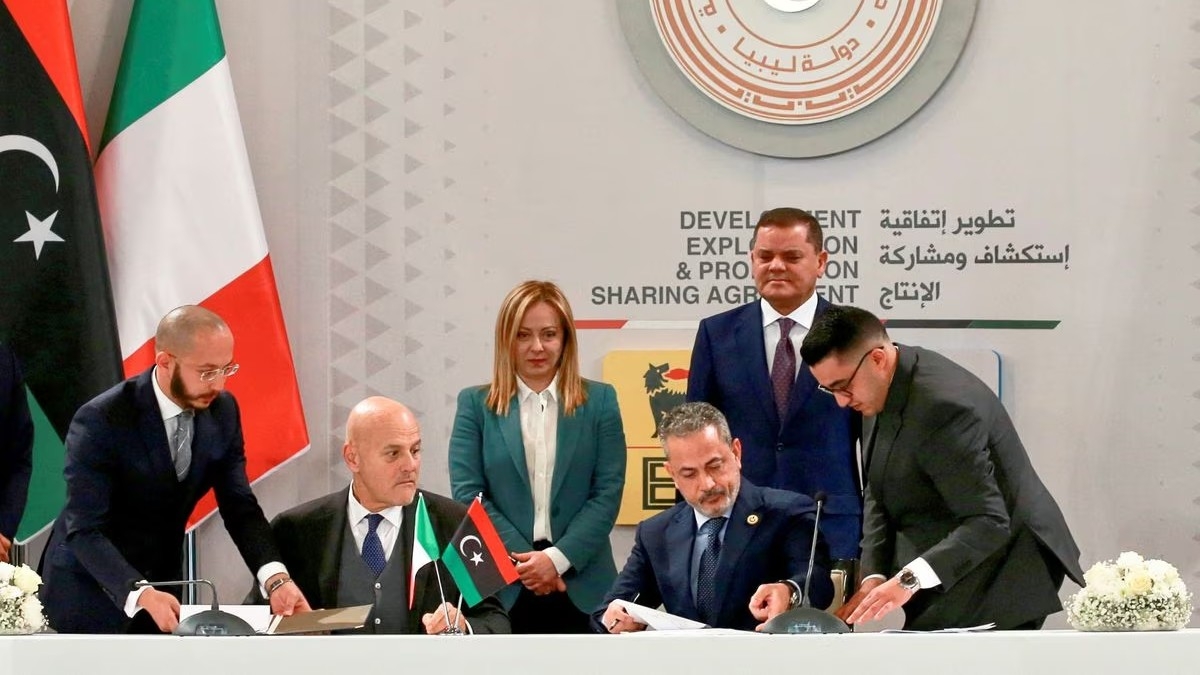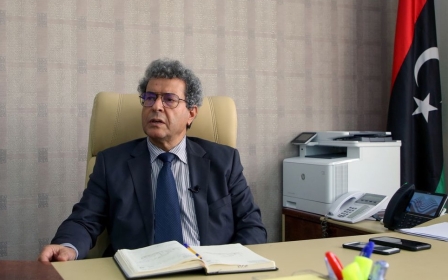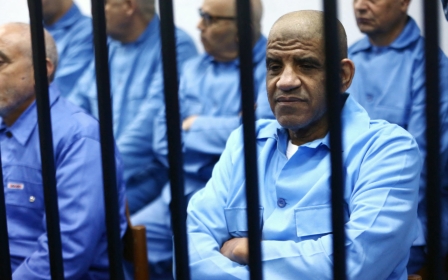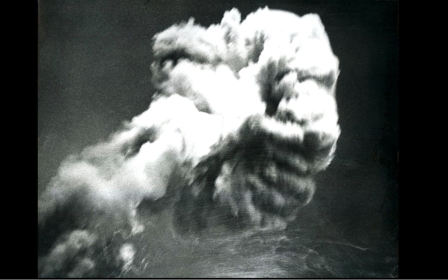Italy's energy deal in Libya criticised as 'pomp and ceremony'

Italy's Prime Minister Giorgia Meloni finalised a tour of North African countries by sealing an $8bn gas production deal between the Italian energy company Eni and Libya's National Oil Corporation (NOC) on Sunday.
The deal, at least on paper, looks like a major win for Italy and Libya. However, it also burnished the political standing of the governments in Rome and Tripoli, which face suspicion and scrutiny from critics at home and abroad.
According to Jalel Harchaoui, a North African political analyst and an associate fellow at the Royal United Services Institute, the deal and the visit by Meloni were nothing more than "pomp and ceremony".
"The meeting made headlines, and it drew a lot of attention. But in terms of substance, we don't know that anything has happened at all," said Harchaoui, speaking to Middle East Eye.
New MEE newsletter: Jerusalem Dispatch
Sign up to get the latest insights and analysis on Israel-Palestine, alongside Turkey Unpacked and other MEE newsletters
'It was largely about altering the image of Georgia Meloni and giving the picture of a prime minister that has new ideas'
- Jalel Harchaoui, North African political analyst
During her visit, Meloni met her Libyan counterpart, Prime Minister Abdulhamid Dbeibah, head of the internationally recognised Government of National Unity (GNU) in Tripoli, in talks that also focused on migration.
But it's the energy deal signed with Eni that captured attention.
"This agreement will enable important investments in Libya's energy sector, contributing to local development and job creation while strengthening Eni's role as a leading operator in the country," said its chief executive, Claudio Descalzi.
"The $8bn figure is actually $4bn from Italy and $4bn from Libya - Libya is required to match every penny invested."
He added that corruption in Libya was well documented, and there was little trust amongst observers that the money would be utilised properly.
"In reality, where is the $4bn from the Libyan side going to come from?" he said.
'Politics, politics'
In a statement, Eni said that output will begin in 2026 and reach a plateau of 21 million cubic metres per day.
But Harchaoui cautioned that there was little in the way of details of how the 2026 deadline can be achieved and in the end the meeting was about "politics, politics".
After a snap election on 25 September, Meloni's far-right Brothers of Italy party emerged as the first political force in the country. It went on to form a coalition with two other far-right parties.
Meloni has attempted to project an air of confidence on some of Italy's most pressing foreign policy matters.
"Migration and energy from North Africa are the most important files in Italy in terms of foreign policy. So any new prime minister will struggle to make an impact," said Harchaoui.
"It's very difficult within a couple of months to be able to deliver an improvement because all the good ideas are already being worked on."
Shoring up legitimacy
The prevailing view amongst most observers is that far-right populist parties, which often have no experience in governing, are either prone to gaffes or don't have a deep bench of policymakers upon which to draw advice from on the big questions, and consequently, are prone to mistakes.
One indication that Meloni has cultivated a different perception came when The Economist lauded her government for marking 100 days in government "in such good shape" earlier this month.
"That's the narrative," said Harchaoui "that she came in with, and within a couple of months on the most important files, she's already able to deliver the difference."
It's not just the Italian prime minister that needs to shore up her legitimacy.
As if to underscore the uncertainty in Libya, Dbeibah's own oil minister, Mohamed Oun, rejected any deal that NOC might strike with Italy, saying only the ministry should make such agreements.
"Dbeibah is a prime minister without a mandate. There is basically a convergence of interest between Italy and Libya. Prime Minister Dbeibah wants to project the idea of having this level of international recognition from a prestigious western democracy," said Harchaoui.
According to Harchaoui, there would have been no deal between the NOC and Eni if Meloni hadn't shown up. Her presence was a precondition for the deal by the Libyan side.
"Meloni's visit shows proximity to high-profile politicians and international legitimacy."
Middle East Eye delivers independent and unrivalled coverage and analysis of the Middle East, North Africa and beyond. To learn more about republishing this content and the associated fees, please fill out this form. More about MEE can be found here.





